TMS 402/602 Building Code Requirements and Specification for Masonry Structures contains two standards and their commentaries: Building Code Requirements for Masonry Structures (TMS 402) and Specification for Masonry Structures (TMS 602). The Code (TMS 402) covers the design and construction of masonry structures while the Specification (TMS 602) is concerned with minimum construction requirements for masonry in structures.
The standards were formerly designated as TMS 402/ACI 530/ASCE 5 and TMS 602/ACI 530.1/ASCE 6.
Showing 11–15 of 17 results
-
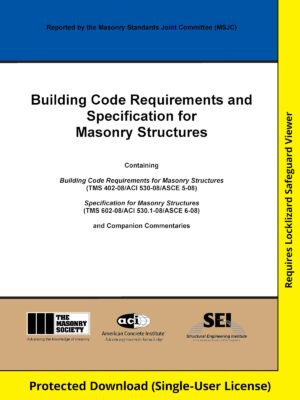
TMS 402/602-08 Building Code Requirements and Specification for Masonry Structures, 2008 (MSJC 2008) – Download Version
$100.00 Select options -
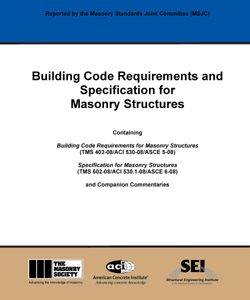
TMS 402/602-08 Building Code Requirements and Specification for Masonry Structures, 2008 (MSJC 2008)
$100.00 Add to cart -
Sale!
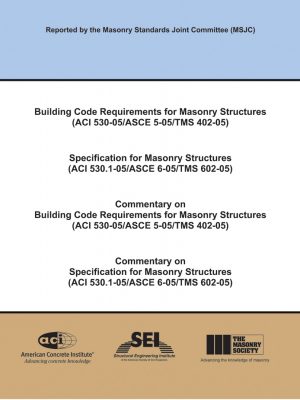
TMS 402/602-05 Building Code Requirements and Specification for Masonry Structures, 2005 (MSJC 2005)
Original price was: $95.00.$16.00Current price is: $16.00. Read more -
Sale!
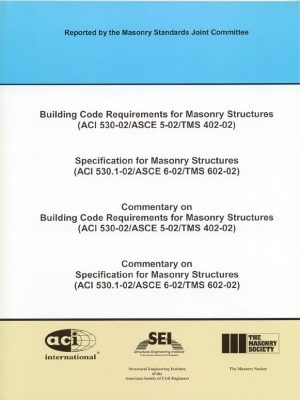
TMS 402/602-02 Building Code Requirements and Specification for Masonry Structures, 2002 (MSJC 2002)
Original price was: $93.50.$16.00Current price is: $16.00. Read more -
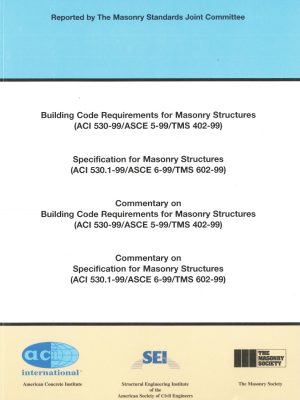
TMS 402/602-99 Building Code Requirements and Specification for Masonry Structures, 1999 (MSJC 1999)
$85.00 Read more
TMS 402/602-22 Now Available!
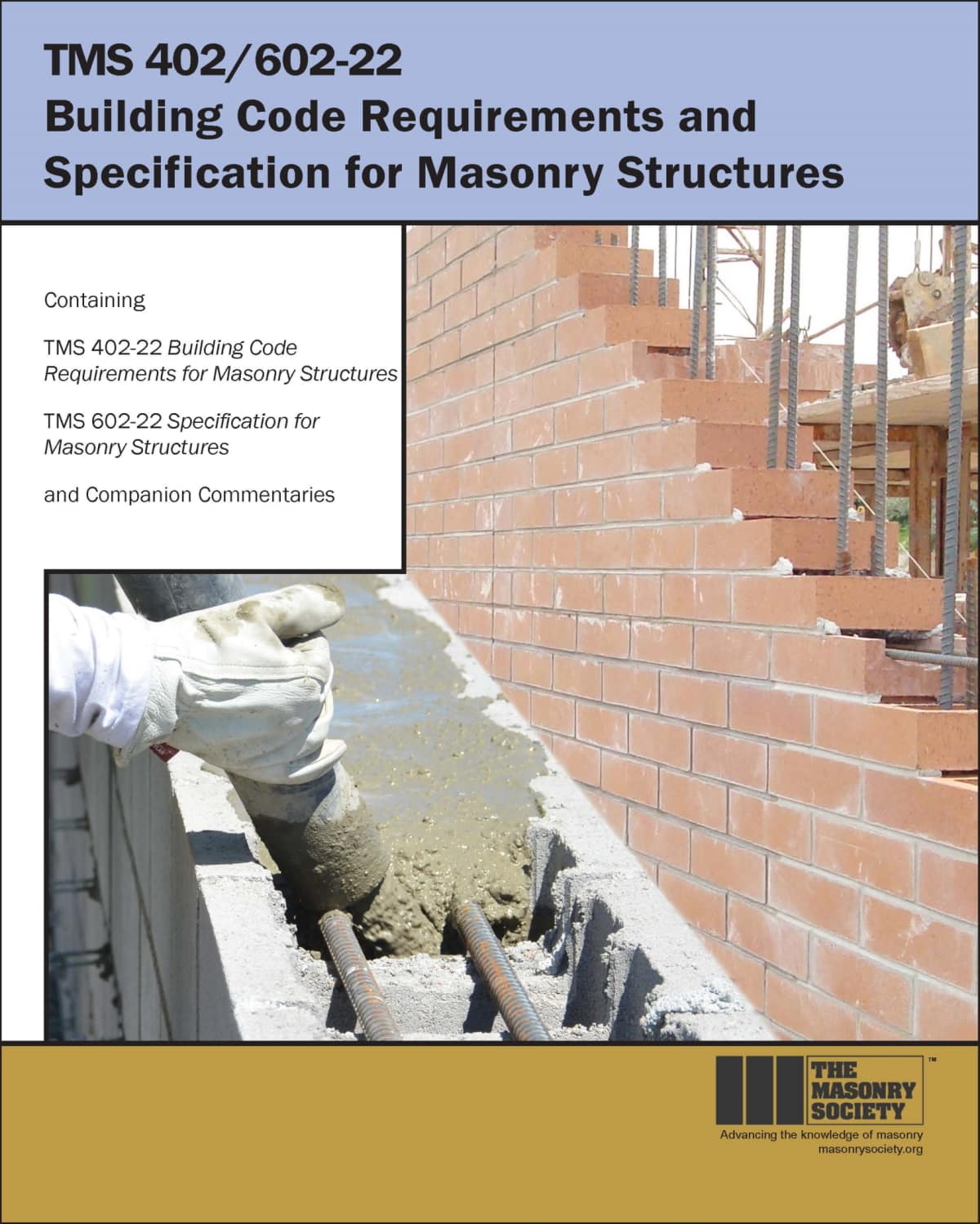
The new 2022 edition of TMS 402/602 has been updated throughout for new referenced standards, including ASCE/SEI 7-22 and numerous ASTM Standards. Other major changes to include:
- New, more rational, masonry veneer provisions
- New Appendix D on composite reinforcement in masonry
- Updated and refined provisions throughout, including compression-controlled section requirements
Cross Reference Lists
Use the cross reference lists below to help you find sections that may have been moved to a new location in this edition.
TMS 402/602-22 Review Series
During this five-part webinar series, masonry experts and Committee leaders review the new standards and changes made since the 2016 edition. These standards will form the basis for masonry design provisions in the 2024 International Building Code and other model building codes and include some major new provisions that include a new appendix on masonry partition walls reinforced with Glass Fiber Reinforced Polymer (GFRP) reinforcement, completely revised anchored and adhered veneer provisions, and enhancements throughout the standards.
This series provides an overview of changes in this edition with individual courses devoted to in-depth discussion of major structural design changes, seismic/limit states design, masonry veneer requirements, and an introduction to the new Appendix D on composite reinforcement in masonry.
About the TMS 402/602 Standards
TMS 402/602 Building Code Requirements and Specification for Masonry Structures contains two standards and their commentaries: Building Code Requirements for Masonry Structures (TMS 402) and Specification for Masonry Structures (TMS 602). The Standards are written as legal documents so that they may be adopted by reference in building codes. The Code (TMS 402) covers the design and construction of masonry structures while the Specification (TMS 602) is concerned with minimum construction requirements for masonry in structures. The commentaries present background details, Committee considerations, and research data used to develop the standards. The commentaries are not mandatory and are for information of the user only.
These standards are produced by The Masonry’s Society’s TMS 402/602 Committee and were formerly developed through the joint sponsorship of The Masonry Society (TMS), the American Concrete Institute (ACI), and the Structural Engineering Institute of the American Society of Civil Engineers (SEI/ASCE) through the Masonry Standards Joint Committee (MSJC). In late 2013, ACI and ASCE relinquished their rights to these standards to TMS who has served as the lead sponsor of the Standards for a number of years. Since then the Committee has operated solely under the sponsorship of The Masonry Society. The Committee’s name and the names of the standards were re-designated.
